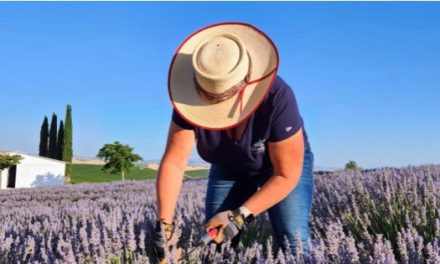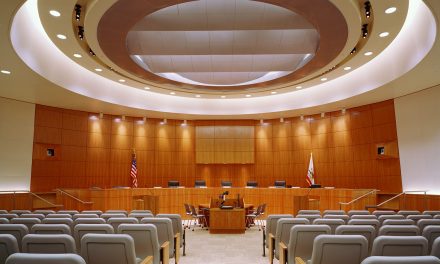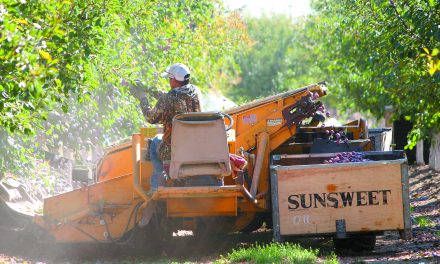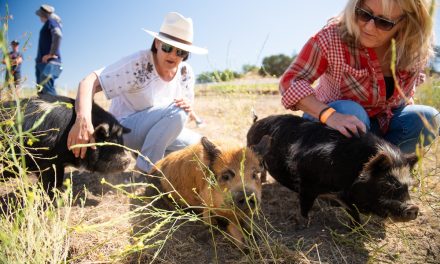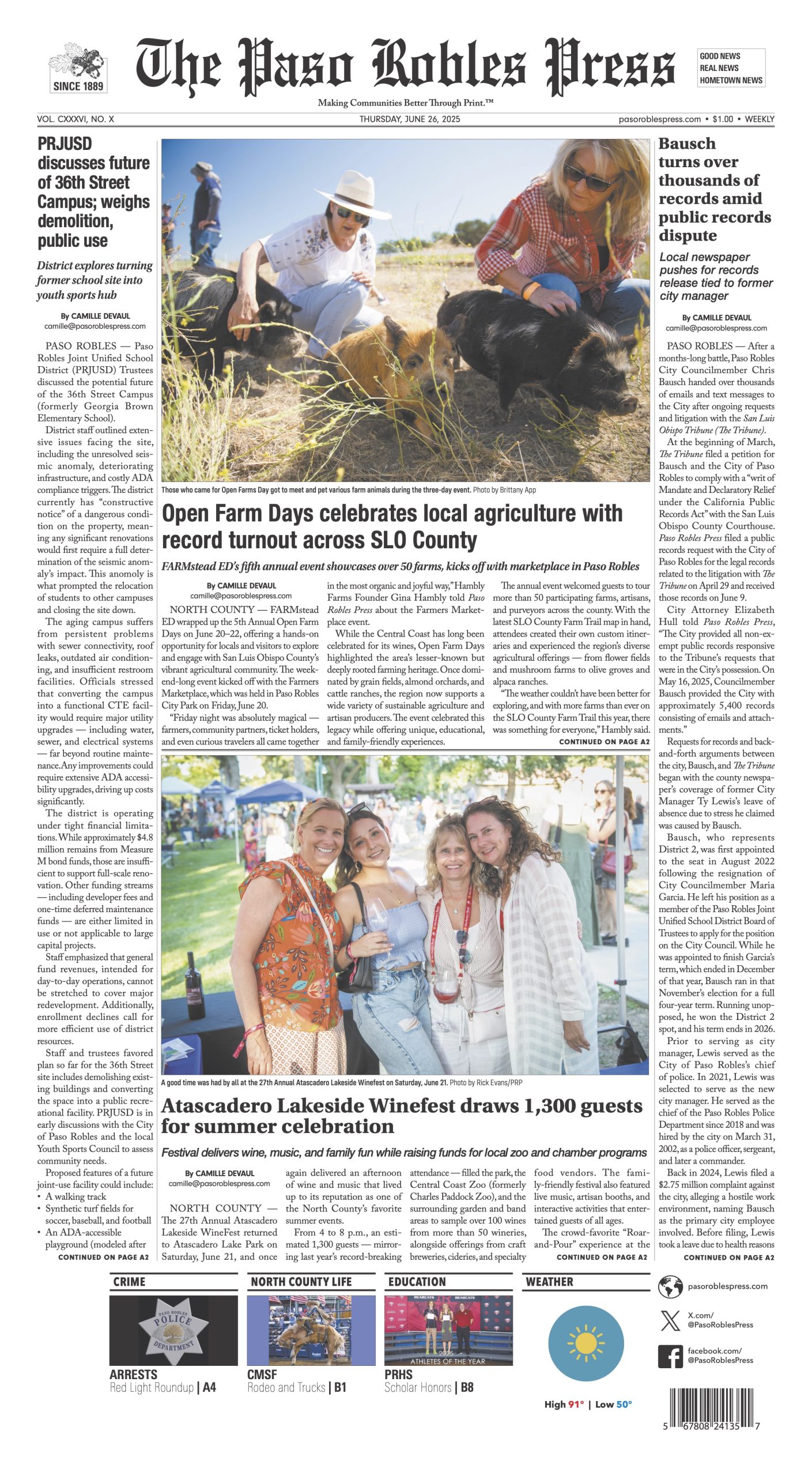Concerns rise over farmland acquisitions in Solano County amidst growing threats to California agriculture
By Ching Lee
California Farm Bureau Federation
CALIFORNIA — Alarmed by a company that they say has been operating in the shadows buying large swaths of farmland in Solano County, farmers and their advocates say the state should bolster its toolbox to protect agricultural resources and open space.
The call came during a hearing last week at the state Capitol, where the state Senate Agriculture Committee held a panel discussion on “navigating threats to California agriculture.” The meeting was prompted by concerns that a group known as Flannery Associates LLC since 2018 has amassed 400 parcels spanning nearly 55,000 acres of agricultural-zoned land near Travis Air Force Base.
The group — now the largest landowner in Solano County — formed the limited liability company so as not to expose the source of more than $800 million used to purchase the land. That 75 percent of the land surrounds the air force base raises national security concerns, local officials and state lawmakers have said.
Recent news reports revealed the group is made up of Silicon Valley billionaire investors whose goal is to build a new city with tens of thousands of homes east of Fairfield. They plan to use a voter initiative, which overrides local zoning that protects Travis Air Force Base and area farmers.
The land acquisitions occurred despite state conservation programs such as the Williamson Act and other mechanisms designed to restrict urban sprawl and protect farmland.
U.S. Rep. John Garamendi, a Democrat and whose district includes much of Solano County, said the firm is “using secrecy, bullying and mobster tactics” to force farmers to sell their land. Those tactics include hiring “big city lawyers” to file a federal lawsuit against seven farm families, claiming they colluded to inflate the price of the land. Garamendi called the legal action “a heavy-handed, despicable intimidation tactic” and said the “bigwig billionaires” behind it “should be shamed” and held to account.
He said keeping the county’s unincorporated land in agricultural production is the best way to prevent encroachment and to protect the military base, which “cannot operate surrounded by skyscrapers, wind turbines, tracked homes or other kinds of development right up to the fence line.” One way to keep the land in agriculture, he said, is through conservation easements, which ensure farmers are compensated for the value of their open space.
Himself a rancher, Garamendi and his wife Patricia in 1999 donated to the California Rangeland Trust, a permanent conservation easement on his ranch in Calaveras County. He noted $40 million is available this year through the U.S. Department of Defense Readiness Environmental Protection Integration Program to purchase easements from willing landowners.
“I hope agricultural landowners across the state will take a hard look at placing easements on their property,” the congressman said.
He encouraged the state to direct additional state funding and tax incentives to encourage more agricultural landowners to permanently conserve their property as open space.
State Sen. Melissa Hurtado, D-Bakersfield, who chairs the Senate Agriculture Committee, said she called the hearing because she has “grown significantly concerned” about the threat that agricultural land acquisitions pose, with some purchases done by other nations and anonymous companies.
Last year alone in the Central Valley, one brokerage firm that specializes in farmland sales oversaw transactions covering 6,024 acres in specialty crops, more than 8,479 acres in dairy sales and more than 17,329 acres in open land development properties, she noted.
Hurtado said she’s had “tough conversations with many farmers” who are “living in fear of having to go bankrupt or being forced into selling because they feel being pushed out by outside interests.” She said the concern is not just about protecting farmland but the rights to resources such as water on the land.
The Williamson Act, which gives landowners property tax breaks if they don’t develop the land, has not been effective in slowing the pace of acquisitions in Solano County, said Christopher Cabaldon, former mayor of West Sacramento who is running for the District 3 seat in the state Senate. He noted the land Flannery purchased is almost entirely Williamson Act holdings, which served as “a flag, like buy here” because the conservation program “has kept prices low for potential buyers to swoop in.”
Landowners who terminate their Williamson Act contracts early must pay a 15 percent penalty of the current market value of the land, but Cabaldon said such a penalty “is of no consequence” to buyers such as Flannery, which has often paid above-market prices for its Solano County land acquisitions.
He said even if the Flannery project is rejected locally, “you can’t reset the clock” and return to the way the community was because the farmers who sold their land will have left, and the supportive infrastructure that existed will have been eliminated.
“If you’re a farmer or rancher in this area now, you may be completely surrounded by incompatible uses that will make it impossible for you to survive,” he said.
He said changes to state laws are necessary to ensure local communities and agriculture “have at least a fighting chance” as projects such as the one Flannery has proposed come forward.
Fresno County Agricultural Commissioner Melissa Cregan said she has seen abandoned crops on purchased farmland harbor pests that move on to nearby farms. Such was the case on the west side of Fresno County, where a Canadian pension fund bought and left 7,000 acres, “causing millions of dollars in damage to the neighbors.”
Current abatement laws “don’t work,” she said, as the abatement process first requires agricultural commissioners to determine who the property owner is, which she said is difficult to do. If the property owner does not cooperate, she would need to remove the abandoned crops. In the case of the 7,000 acres, she said, it would cost $20 million to $25 million — more than double her department budget.
Madonna Lang, a fifth-generation farmer and second-generation realtor in Bakersfield, said there needs to be better transparency in real estate transactions to identify property owners. This includes collecting information such as a verified physical address, email, phone number, and foreign status for corporations, LLCs and individuals owning land in the state.
She noted California law requires sellers to declare if they possess nonforeign status, but the requirement does not apply to buyers.
Even though the Williamson Act may not have stopped the Flannery acquisitions, Michael Delbar, CEO of California Rangeland Trust, said the program can provide “a huge benefit” to farmers and ranchers by lowering their taxes and helping to keep them in business.



